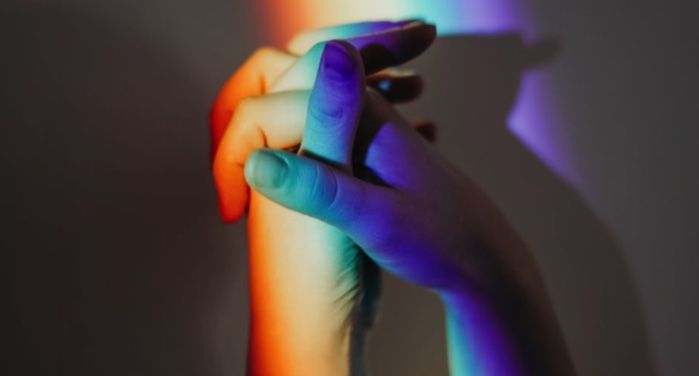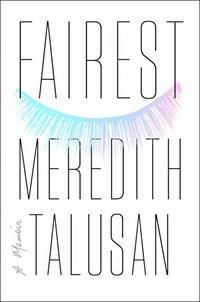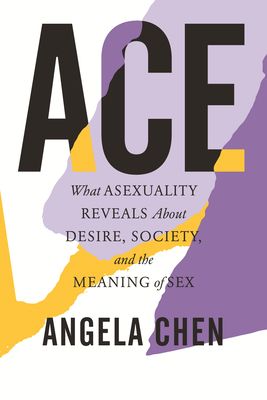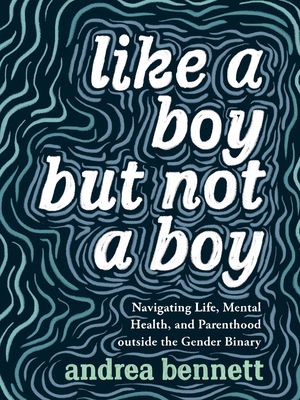
5 Nonfiction Books From 2020 That Challenge Mainstream Queer Narratives
There is one particular kind of queer book that I seek out hungrily in my reading life. These are books that do two seemingly contradictory things at the same time. First, they reflect my own queerness back to me in ways that feel both intimate and revelatory. They articulate some innate thing about my experience as a queer human that I wasn’t able to name or express until the words on the page make me sit back, and take a deep breath, and say, “Oh. Yes. Exactly that.”
Second, they open, expand, and challenge my ideas about queerness. They show me something entirely new or different. They do not let me read idly, as an observer, or even as someone deeply connected to the material, heart beating fast in my chest, nodding along. Instead, they ask complicated questions about the nature of queer identity, and then force me to grapple with those questions. They invite me to look at — and interrogate — my own assumptions about queerness and queer lives and queer stories.
The queer books I love the most are the ones that remind me that queerness is expansive and limitless, endlessly varied, ever-changing. They’re achingly familiar and shockingly new at the same time. These five books from 2020 are this kind of queer book. They shook me up in the best way. I read them, and they changed me, which is the highest praise I can offer any book.
Tomboyland by Melissa Faliveno
This beautiful book of essays is far-ranging. Faliveno writes with curiosity and thoughtfulness about so many things, from growing up in the Midwest and Midwestern culture to queer family, gender expression, sex and desire, and parenthood. Even today, bisexual identities and queer people in long-term mixed-gender relationships are too often ignored within queer communities. This book is a direct challenge to bi erasure and invisibility. It’s also a book that explores the possibilities of queerness in a hundred different ways, and how queerness can mean so many different things to different people. These essays are about how queerness intersects with place, parenthood, and the natural world. Faliveno pushes back against binaries and boxes, instead exploring a queerness that is expansive, that has room for — and benefits from — a million iterations.

Fairest by Meredith Talusan
Claiming and embodying a range of identities over the course of a life is a common queer experience. But it’s an experience many queer books avoid, and for good reason. The homophobic and transphobic world often equates change with erasure, i.e. if you dare to admit your identity is not static, how can you be sure you’re really bisexual/transgender/asexual/etc.? Talusan isn’t not afraid to dive into this murky place. I have never read a book that captures this messy journey so beautifully. Talusan grew up in the Philippines and moved to the U.S. as a teenager. She writes about her experiences as an Asian immigrant with albinism, her college life, coming of age as a writer, and her journey to trans womanhood. What makes her memoir so extraordinary is how willing she is inhabit the scary, complicated, and sometimes contradictory space of shifting identity. She refuses to adhere to stereotypical norms and mainstream ideas about what a trans memoir — or a trans life — should like look. Instead, she writes with incredible honestly and vulnerability about the truth of her varied experiences, which do not fit into a neat or linear narrative.

Ace by Angela Chen
I love the subtitle of this book, because it articulates something that all the books on this list do. They offer new ways of understanding the world for all of us, queer and straight alike. This book is a fabulous introduction to asexuality, but it’s not only that. Using an asexual lens, Chen explores human relationships of all kinds, sex, desire, intimacy, gender, and love. She eloquently illustrates how narrow, mainstream ideas about “normal” relationships and sexualities are harmful to everyone. The book is a combination of her own personal experiences as an asexual woman, dozens of interviews with other aces of many genders, scientific research, and cultural analysis. It’s a celebration of the limitless ways that people connect with each other, create families and partnerships, and experience (or do not experience) pleasure.

Like a Boy But Not a Boy by Andrea Bennett
Like Tomboyland, this is a book that asks hard questions about queerness — who defines it and who gets to claim it? How do we perceive it in each other? What makes it visible or invisible? Where does it live in the body? Bennett writes about their life as a nonbinary parent, about working-class identity, about art, mental illness, and the challenges of long-term partnership. Much of the essays in this book are about ordinary experiences: struggling to make rent, the series of jobs they held in their 20s, breastfeeding, riding public transit. Bennett beautifully captures the ways in which their identity as a queer nonbinary person changes these experiences, and the ways that it doesn’t. The book also includes short interviews with queer millennials who came of age in small towns throughout Canada, and their diverse experiences of queer identity.
Something That May Shock and Discredit You by Daniel M. Lavery
This is one of those books that defies classification, so I’m not even going to try. It’s fiction and nonfiction at the same time. It’s a book of essays and retellings and reimaginings of everything from classic Greek myths to The Golden Girls. Lavery writes intimately about his life, and more specifically about his transition, but he also writes about literature, film, TV, mythology, and religion from a distinctly trans viewpoint. He also interrogates transition — not just his experience of it, but the idea of it — from so many angles. It’s a book about transformation. It is beautifully messy. Lavery is willing to be unsure; he explores his doubts, insecurities, confusion, and anxiety with so much openness. This book challenged me in so many ways, but it also made me laugh out loud and cry multiple times. It’s an example of how brilliant and vital queer and trans literature is, and how much it has to teach us about the world.
Looking for more great queer lit? Check out these nonfiction books on LGBT history and culture, and 40 of my favorite queer reads.










